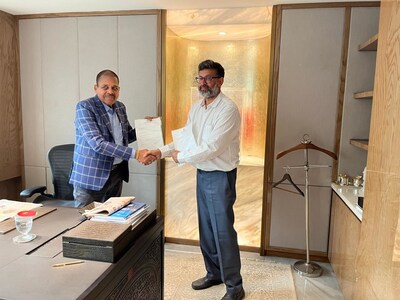SINGAPORE: For more than a decade, a general practitioner at a Marine Parade clinic improperly prescribed long-term sedative medication to seven patients and did not refer most of them to a psychiatrist or specialist for further management.
Dr Maninder Singh Shahi’s patients – three of whom were elderly – grew dependent on the drugs, which included sleeping pills to treat insomnia.
He also failed to document his reasons for repeatedly prescribing such medication to one patient.
For his actions, the family doctor with 35 years of experience has been suspended from medical practice for three years by a disciplinary tribunal.
In its grounds of decision released on Tuesday (Jan 9), the three-member tribunal accepted the Singapore Medical Council (SMC)’s submissions for the suspension, but rejected Dr Singh’s argument for a reduction in sentence due to a delay in prosecution.
WHAT HAPPENED
Dr Singh, now aged 61, practised at 81 Family Clinic located in Marine Parade Central at the time. It has since been renamed Legacy Clinic.
He pleaded guilty before the tribunal to 14 charges of professional misconduct in relation to his actions from 2002 to 2016.
These charges included inappropriately prescribing benzodiazepines, zopiclone or zolpidem; failing to refer patients or refer them in a timely manner to a psychiatrist or medical specialist; and failing to maintain sufficient details in patients’ medical records.
Benzodiazepines treat a range of conditions such as insomnia and anxiety, while zolpidem and zopiclone are non-benzodiazepine drugs that treat insomnia.
Dr Singh prescribed these medications to the affected patients for periods ranging from seven years to 13 years and eight months.
The patient that Dr Singh treated the longest, only identified as P3, consulted him more than 300 times for insomnia.
Dr Singh prescribed benzodiazepines to P3 beyond the recommended period of four weeks, along with medication containing opioid analgesics such as codeine.
Under the SMC ethical code and guidelines, doctors are supposed to either prescribe these medications for intermittent use or short-term relief of between two to four weeks. They are also required to limit chronic benzodiazepine prescription where possible,
For patients who are prescribed benzodiazepines or other hypnotics for more than eight weeks, they should not be further prescribed with these medications and must be referred to a specialist for further management.
Where benzodiazepines are repeatedly prescribed, doctors must clearly document certain aspects in the patient’s medical records.
These include their justification for the prescription, a comprehensive assessment of the patient, and the patient’s diagnosis and psychosocial history.
PRESCRIPTIONS FUELLED DEPENDENCE: SMC
The SMC argued that Dr Singh exposed his patients to substantial potential for serious injury or harm through his inappropriate prescriptions for hypnotics.
These long-term prescriptions “undoubtedly created and/or fuelled his patients’ dependence and tolerance” towards the medications, added the SMC.
“Disciplinary tribunals have … repeatedly emphasised that the main sentencing principle in cases involving inappropriate prescriptions of benzodiazepines and non-benzodiazepine hypnotics is that of deterrence, given that such misconduct appears to be ever more prevalent,” it noted.
In his mitigation, Dr Singh said that he was not motivated by profit or greed, but wanted to help his patients by prescribing hypnotics to them.
He had a long-standing relationship with the affected patients who had stress-related issues such as insomnia or anxiety. He was concerned for them and continued prescribing the medications in the “admittedly erroneous” belief that he was helping them.
To the best of his knowledge, some of them have stopped their dependence on the medications, he said.
According to Dr Singh, he also tried to refer three patients to a psychiatrist but they were not keen to do so. In that situation, he did not want to alienate them and felt it was important that they remained in his care, where he could continue to monitor their condition.
Dr Singh also said he ran an “extremely busy” practice, seeing as many as 40 to 70 patients every day for many years.
He has since handed over primary care of the clinic to his daughter and has been seeing patients only in the evenings.
In terms of medical records, Dr Singh said it was his practice to only take brief notes during consultations before making additional notes on treatment and prescriptions in a database. Unfortunately, these digital records were lost when the hard disk crashed in 2015.







